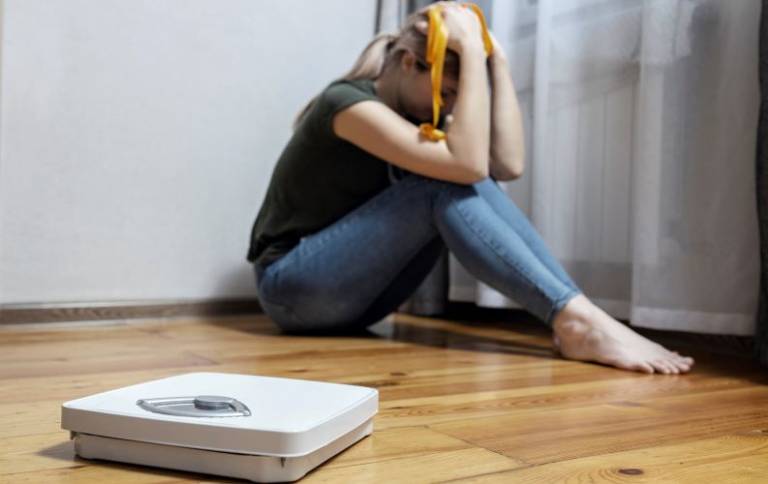Social media usage linked to eating disorders in young people
29 March 2023
People aged between 10-24 who use social media sites may potentially be at risk of developing image concerns, eating disorders and poor mental health, suggests a new scoping review by UCL researchers.

The study, published in PLOS Global Public Health, examined evidence from 50 studies in 17 countries and found that social media creates risks of social comparison and promotes the idea that it is vital to be thin or fit.
Social media trends, access to pro-eating disorder content and social media platforms that focus on appearance, also compound the problem.
Young females with a high BMI and existing body image concerns are at highest risk of being affected by the content they see online, the study found.
The research was carried out by Dr Komal Bhatia, a Research Fellow at the UCL Institute for Global Health, and Alexandra Dane, who studied on the MSc Global Health and Development at UCL 2020-21.
Lead author, Ms Dane (UCL Institute for Global Health), said: “Our findings show that social media usage is a plausible risk factor for the development of eating disorders. And, based on the scale of social media usage amongst young people, this issue is worthy of attention as an emerging global public health issue.”
Eating disorders are characterised by negative body image and an extreme preoccupation with weight and shape. This can be expressed in forms such as anorexia, bulimia and binge eating.
Those who are affected are at risk of cardiovascular disease, reduced bone density and other psychiatric conditions, including depression and anxiety. Eating disorders may also affect fertility. Worryingly, anorexia has the highest death rate of all mental disorders, and this can be due to physical complications or suicide.
Ms Dane, added: “Through the lens of social media, someone else can always look better, skinnier, or prettier. Likewise, pro-eating disorder content is rife, and the ‘healthy’ #fitspiration trend may be fuelling new waves of disturbed eating and exercise pathology.
“The outcome is a population of young people at risk of corroded body image, gaping discrepancies between their actual and ‘polished’ online selves, and an increased likelihood of engaging in compensatory disordered eating behaviours, as our review has shown.”
It’s estimated that 91% of UK and US adolescents use social media, with over 50% checking their online accounts at least once per hour.
Meanwhile, the use of filters and editing tools mean that young people are bombarded with unattainable images of perfection.
Now researchers are calling for the issue to receive more recognition, funding and research to ensure the education and early identification of at-risk individuals.
They hope that this will make it easier to address issues before they reach a healthcare setting.
Dr Bhatia (UCL Institute for Global Health) said: “With significant strides being made in the realm of global adolescent mental health, intervention is clearly possible. Through recognition, funding, research, and prioritisation, there is hope that this issue will receive more attention, and concern will translate into tangible action.
“It is imperative to think about the wellbeing and safety of adolescents and young people on social media platforms. Just as adults design roads and public places, but create safe crossings near schools for young people, we think it's only fair that young people are able to use social media without risk to their mental health, particularly disordered eating and body image concerns."
Links
- Research in PLOS Global Public Health
- Dr Komal Bhatia’s academic profile
- UCL Institute for Global Health
- UCL Population Health Sciences
Image
- Credit: Andrii Zorii on iStock
 Close
Close

